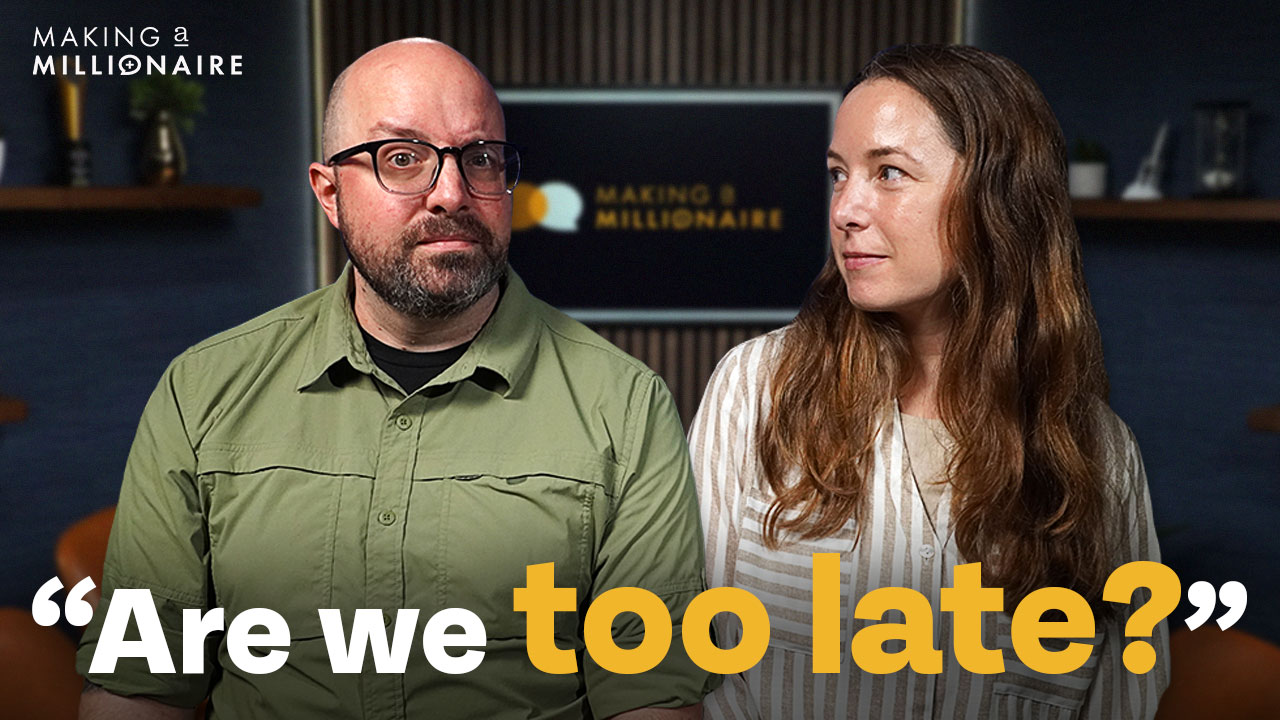Now, let's move on to talking about a third thing you can do with real estate. This was very popular over the past decade, and I'm curious to see how popular it still is. One of the things you hear people talk about is, "Hey, I'm just going to flip some houses. I don't need to deal with a renter. I don't want to handle that. I just want to buy a house, put some lipstick on it, and flip it." This is the entire business plan of Home and Garden TV, those HGTV shows you see. I mean, they have a representative for almost every city in America with this concept.
So, when you think about this, according to Attom, the median house flip in 2022 made almost $68,000. So, flipping a house should make $68,000. Well, Brian, you mentioned in the show, "I'm probably going to throw out my go-kart math here. All I've got to do is flip 15 homes to reach a million bucks. That seems so digestible, especially over 10 years. We can make this happen." But obviously, there are some flaws to this process.
The very first flaw is that you have to factor in all the missing costs. There are closing costs every time you have a transaction. In order to actually flip the house, you'll probably have to put money into it for renovation costs. You're going to have taxes that you're going to have to carry, and there are other things that come into it. So, just thinking about your gross profit is not going to be as valuable. You need to be focusing on net profit to be able to get to that million dollars. I don't know that each home flip is going to be quite as profitable as they make it seem, even though it was only 15 transactions. This would still require that you're flipping multiple homes, meaning you're essentially doing this every eight months, so you've got them in different modes of rehab. And this doesn't happen overnight.
Also, I don't think it's the easiest thing to find the deals because if you have to do this six to nine months, it's an aggressive time frame for highly experienced flippers for renovating and turning these houses into beautiful gems. It just seems like you're really counting on a lot of things to go right, and the longer you hold the property, the less money you make. It has to move quickly in order to be profitable.
Also, saving for the first down payment, which usually is going to be 15%, if it's purely going to be a speculative flip property, it's going to be difficult. It's going to take time to be able to do that. And if you're going to be cranking through this over and over and over again, you're going to need a solid, quality network of folks. You're going to need really good real estate agents, you're going to need really good contractors, you're going to need really good people who know how to work with your buyers and work with the sellers to get these transactions processed through in a timely manner. And I don't know about you, Brian, but every real estate transaction I've ever done has not been fast; they're all slow. So, thinking about doing this multiple times over the years, I think it's going to be... And then getting vendors to come out and do your work, because realize, like here in the Nashville marketplace, where all the tradespeople can go work on full house construction, they don't like to do one-off projects, I can just go ahead and tell you, because they look at their time as money, and it's hard to get them to go over.
So, that quality network is going to take time to build or even for you to create, for you to have tradespeople that work directly for you. That's going to take a period of time. So, that's not going to happen overnight. So, 10 years, once again, is going to really squeeze out.
And then the last thing that I think is important is timing. Bo, I know for a lot of people, pre-Great Recession, we thought real estate only goes up; God ain't making any more land, right? I mean, you hear, "God doesn't make more land." But if we use history as a guide, we know that there might be some caution tape around this. If you're going to be flipping, buying something and selling it for more, you really need the housing prices to go up. You need them to increase. And right now, when we think about these last couple of years, it seems like that's the way that it works. But if you look at real estate prices from 2007 all the way till now, well, you can see that during the Great Recession, from 2007 till about the middle of 2009, the beginning of 2010, real estate prices dropped 19%. Then you can even see since the highs in 2022 until now, real estate prices have come back 13%. So, if you're trying to buy and flip, and buy and flip, and buy and flip, but the market is not moving in the direction that you need it to move, it's going to make things a little bit more difficult. Those down periods are death because what happens is, leveraged – we love it, you know, you hear everybody talk about how great it is – but this is the Achilles' heel of leverage. This is that, more than... I mean, because from 2007 all the way through 2009, that's probably 24 to 30 months that we're seeing that nobody's buying, and the more you hold it, you still have to cover all the mortgage payments, you have all the repairs. You're running multiple projects; this will eat you alive. It will actually consume you whole, and you'll be like, "Man, how did I get to be such a knucklehead?" This is why you need to be very careful with real estate. And that's why we even came up with, "Before you buy real estate, there are some things you ought to think about."
Yeah, we love real estate. Do not mishear us; we're not suggesting that we don't – we love it. But you need to go into it with your eyes wide open. The first thing you ought to think about: real estate has large phantom costs that you need to be aware of. It's not simply, "How much can I buy a piece of real estate for, and then how much can I sell a piece of real estate for? How much can I buy it for, and how much rent will it generate?" There are more things that go into the equation. So, you need to make sure you have a realistic understanding of the true costs of what this endeavor might have so that you can assess whether or not it's worth you putting your hard-earned dollars.
Well, it just requires jingling your pocket. This is why we always talk about – we love real estate, but it's a step eight of the financial order of operations. Go to moneyguy.com/resources to download your free copy of the nine steps. But it's a step eight because you've got to have enough money to weather the bad times, but also to cover all those phantom and friction costs we talked about.
I think a good example of this, Bo, is Graham Stephan. We covered Graham Stephan. He's got millions of followers on YouTube. We know his financial foundation and success came from working in the real estate marketplace. But a lot of people skipped the step that Graham built up over $200,000 before he kind of went deeper into this whole real estate game. It's not something you start from zero at. You better build some foundation underneath you, Dan, if you are going to do real estate. Make sure that it's a part of your portfolio, not your whole portfolio.
I mean, you mentioned, Brian, we have a lot of real estate between the two of us, but we also have other assets as well. So, diversification can be your friend when it comes to building your financial wherewithal. Because what you don't want to do is be on this path where you're going to try to get to millionaire status, you're going to try to build wealth, and you do it solely and exclusively in real estate, and you just get unlucky that you're trying to do it in the bad real estate market. So, let it be part of your portfolio, not the sum total of the portfolio. And then it needs to be long-term. You're in this for the long game. The fact is that, look, when you hear about big investors, what Kiyosaki talks about, the 100/100 rental property, that doesn't happen overnight. That scale happens over a long period of time. When we're talking about real estate, it typically starts with one home, it builds up over time. You don't do this all at once because you'll overload the system. You'll overload your financial stability. You have to be in this long-term, and it's going to take a period of time to build up.
And then, Brian, you always say this: "If you're going to go into real estate, it's easy to read the brochure. It's easy to just decide, 'Oh, this is a way I can make money; I want to go pursue that.' But if you start pursuing it solely for the financial impact of it, not recognizing that it's going to possibly be stressful, it's going to possibly be expensive, it's going to take your time, it's going to take your attention, and those aren't things that you want to sacrifice, perhaps there are other ways for you to go about your wealth-building. So, don't just read the brochure and decide you're going to jump right in. Make sure that there's another reason – maybe you're handy, maybe you like it, maybe you find fulfillment in doing it – before you fully jump in. Yeah, this is definitely real estate can be very fulfilling, but it definitely has some risks associated with it. For more information, check out our
free resources.













